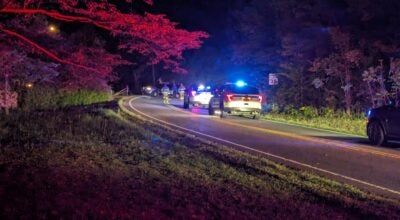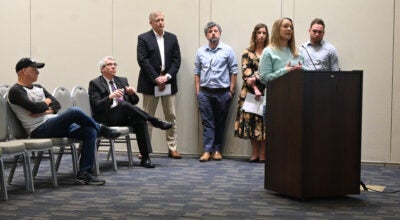Fracking not likely in Rowan, but some concerns remain
Published 12:00 am Thursday, July 5, 2012
By Karissa Minn
kminn@salisburypost.com
SALISBURY — Experts and lawmakers say fracking for natural gas probably won’t happen in Rowan County, but a new law allowing it could still have a local impact.
On Monday night, the N.C. General Assembly voted to override the governor’s veto of a bill that legalizes this controversial form of shale gas exploration.
In her veto message Sunday, Gov. Beverly Perdue said the Republican-led legislature did too little to protect drinking water, landowners and local governments. The Democratic governor has said she would support fracking if the right regulations are in place and it can be done safely.
The process of horizontal drilling and hydraulic fracturing involves injecting chemically treated water and sand into a drilled well to crack shale rock, releasing natural gas trapped underground.
In North Carolina, fracking would most likely occur along a band of shale deposits running from the Raleigh-Durham area southwest to Montgomery and Anson counties.
State geological assesments show one smaller shale basin in Stokes and Rockingham counties, and another at the border between Davie and Yadkin counties.
N.C. Sen. Andrew Brock, a Republican who represents both Rowan and Davie counties, said that basin runs right under his family farm.
“My family has lived there for hundreds of years,” Brock said. “There’s nothing I’d do to hurt that land.”
He said he supports the new law because it allows exploration that could create jobs and promote energy independence.
The state will put measures in place, Brock said, to prevent and punish groundwater contamination. He said North Carolina officials are watching other states that allow hydraulic fracturing to learn from their mistakes.
“We’re going to make sure that this is something viable and that we do it as safely as possible,” Brock said.
• • •
Dr. Francis Koster, an energy policy analyst and lecturer based in Kannapolis, said local landowners might want to watch carefully as the state moves forward.
In North Carolina, companies are allowed to take private property — similar to the government’s power of eminent domain — for certain reasons.
“Most people do not realize that this applies to building gas pipelines, often built hundreds of miles from the actual wells to move the gas to markets, so even areas far from the drilling like Rowan and Cabarrus County could be impacted,” Koster said.
He said it will be important to watch how the state develops its rules and regulations for fracking over the next two years. At that point, the General Assembly must take another vote before drilling permits are issued.
“It may not be as slow as some wanted, but it’s not as fast as some wanted, either,” said Rep. Fred Steen, a Republican. “We want to do fracking, but we want to make sure it’s done in the safest and best way as we can.”
He said the state will look at a variety of scientific data, including soil tests, to see where and how fracking could safely take place.
When the bill was first introduced, N.C. Rep. Harry Warren said he had serious environmental concerns about it. Now, the Republican says the finalized law addresses most of those for him.“It does put regulations and standards in place before actual fracking is permitted to occur,” Warren said. “I still have concerns about the use of water in the process.”He said he supports the use of liquid petroleum gel because it would not make water unusable. Wastewater from fracking is often disposed of in separate wells to avoid contamination.
Koster warned that in some states, the chemicals used in hydraulic fracturing are considered trade secrets, so the public doesn’t know what they are.
“Since these chemicals can last hundreds of years, and even tiny amounts can harm human health, every citizen should watch the rule making process carefully to make sure that full disclosure of these poisons is required before use,” Koster said.
He said the state should require aquifer testing before any drilling is done, so that if a well is polluted, a landowner can show that it’s related to the drilling.
The state could make that testing a part of its permit requirements, Steen said.
Estimates vary on the amount of natural gas that fracking could turn up. Environmentalists say the supply is too small to be worth the risks involved, while drilling supporters say the state won’t know for sure until it starts exploration.
According to Associated Press reports, the law includes many consumer protections for landowners who lease their land for shale gas exploration and production, or whose land or water is contaminated. But opponents said more were needed.
Critics also said legislators ignored findings in a Department of Environment and Natural Resources report that called for more studies before deciding whether to allow shale gas development.
Contact reporter Karissa Minn at 704-797-4222.
Twitter: twitter.com/postcopolitics
Facebook: facebook.com/ Karissa.SalisburyPost





